[Weekender] Korean War as seen through films
Korean War and postwar situation have spawned films across genres but critics question whether this is sustainable long term
By Song Seung-hyunPublished : June 25, 2022 - 00:17
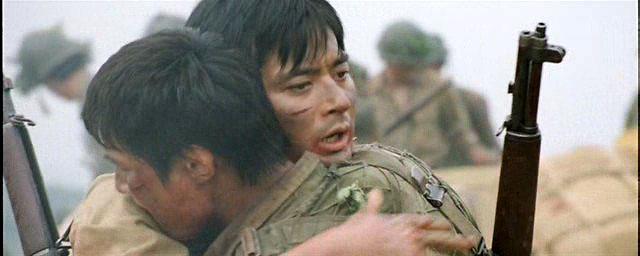
The Korean War, which broke out 72 years ago on June 25, 1950, is a tragedy that divided the Korean Peninsula into South and North Korea, a division that remains to this day with the two countries still technically at war.
It is no surprise that the war and postwar situation of Korea have become common subject matters for numerous films of various genres.
Most Korean War-related movies tend to be serious and aim at showing the difficulties that people faced during and after the war.
The ambitious Korean war epic “Taegukgi: The Brotherhood of War” (2004), which attracted more than 11.7 million moviegoers here, is one of the most iconic Korean War films.
Two top Korean stars -- Jang Dong-gun and Won Bin -- tell the story of two brothers who are drafted to the South Korean Army at the outbreak of the Korean War.
Another film, sports drama “As One” directed by Moon Hyun-sung, is based on a true event that took place decades after the Korean War that ended in an armistice.
The film depicts the first ever postwar Unified Korea sports team which won the women’s team gold medal at the 1991 World Table Tennis Championships in Chiba, Japan.
Some filmmakers aren’t afraid to use their creative license to its fullest, although such works that lean more into the imaginative side are rare.
“Secretly, Greatly,” which drew over 6.9 million moviegoers and starred national heartthrob Kim Soo-hyun in the lead, features three young, attractive North Korean spies who disguise themselves as a rock musician, a high school student, and an intellectually challenged young man, in South Korea.
The film was based on the popular 2010 webtoon series “Convertness” by artist Hun.
It is no surprise that the war and postwar situation of Korea have become common subject matters for numerous films of various genres.
Most Korean War-related movies tend to be serious and aim at showing the difficulties that people faced during and after the war.
The ambitious Korean war epic “Taegukgi: The Brotherhood of War” (2004), which attracted more than 11.7 million moviegoers here, is one of the most iconic Korean War films.
Two top Korean stars -- Jang Dong-gun and Won Bin -- tell the story of two brothers who are drafted to the South Korean Army at the outbreak of the Korean War.
Another film, sports drama “As One” directed by Moon Hyun-sung, is based on a true event that took place decades after the Korean War that ended in an armistice.
The film depicts the first ever postwar Unified Korea sports team which won the women’s team gold medal at the 1991 World Table Tennis Championships in Chiba, Japan.
Some filmmakers aren’t afraid to use their creative license to its fullest, although such works that lean more into the imaginative side are rare.
“Secretly, Greatly,” which drew over 6.9 million moviegoers and starred national heartthrob Kim Soo-hyun in the lead, features three young, attractive North Korean spies who disguise themselves as a rock musician, a high school student, and an intellectually challenged young man, in South Korea.
The film was based on the popular 2010 webtoon series “Convertness” by artist Hun.
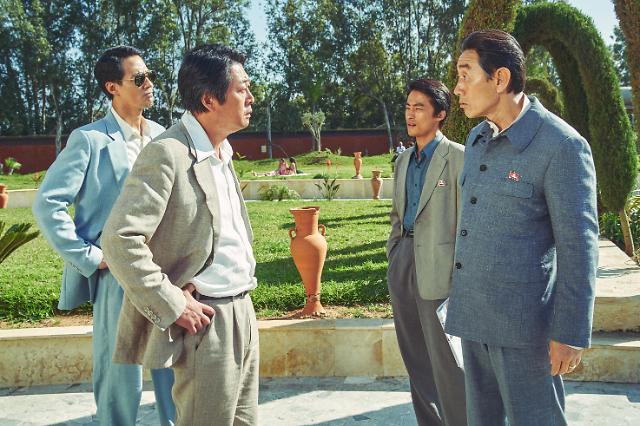
Korean audiences’ all-time favorites?
Not only have the Korean War and the postwar situation been a source of inspiration for filmmakers, they have also been an appealing topic for Korean moviegoers as well.
“Silmido” directed by Kang Woo-suk, which shows the tension between the two Koreas after the Korean War, is the first Korean film to have attracted more than 10 million admissions in Korean cinema history when it was released in 2003.
The film, based on a true story, mainly featured a special team of 31 social outcasts, including criminals on death row and life imprisonment, that was created to assassinate North Korean leader Kim Il-sung.
“Ode to My Father” and “Taegukgi: The Brotherhood of War” became box office hits, garnering more than 10 million viewers here.
Most recently, “Escape from Mogadishu” directed by Ryoo Seung-wan, which depicts the story of South and North Korean diplomats forced to cooperate to escape Somalia’s civil war, also became the most-watched film last year by selling more than 3 million tickets, despite the COVID-19 pandemic.
However, mining the Korean War or the inter-Korean conflict as a source for material does not always guarantee box office success.
Not only have the Korean War and the postwar situation been a source of inspiration for filmmakers, they have also been an appealing topic for Korean moviegoers as well.
“Silmido” directed by Kang Woo-suk, which shows the tension between the two Koreas after the Korean War, is the first Korean film to have attracted more than 10 million admissions in Korean cinema history when it was released in 2003.
The film, based on a true story, mainly featured a special team of 31 social outcasts, including criminals on death row and life imprisonment, that was created to assassinate North Korean leader Kim Il-sung.
“Ode to My Father” and “Taegukgi: The Brotherhood of War” became box office hits, garnering more than 10 million viewers here.
Most recently, “Escape from Mogadishu” directed by Ryoo Seung-wan, which depicts the story of South and North Korean diplomats forced to cooperate to escape Somalia’s civil war, also became the most-watched film last year by selling more than 3 million tickets, despite the COVID-19 pandemic.
However, mining the Korean War or the inter-Korean conflict as a source for material does not always guarantee box office success.
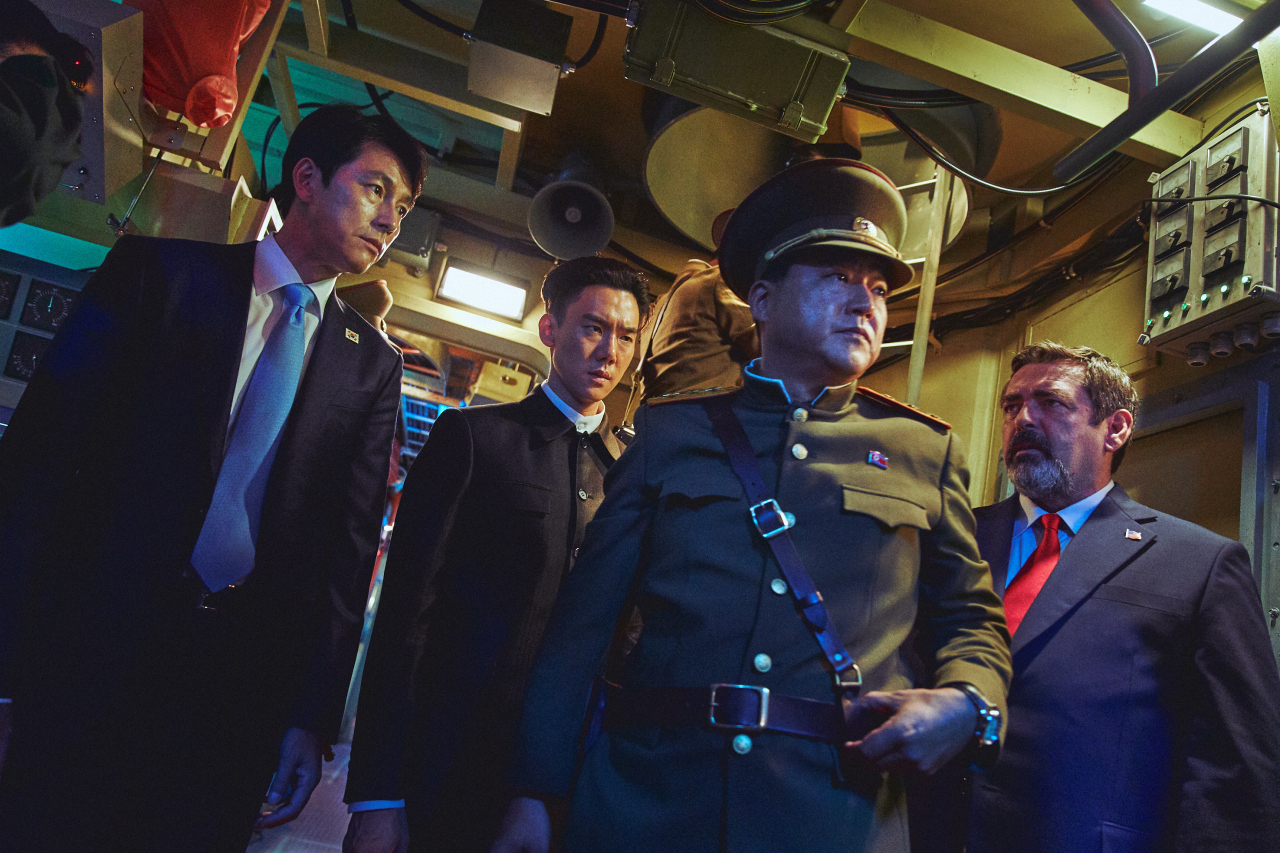
Yang Woo-suk’s “Steel Rain 2: Summit,” in which leaders of a peace summit discuss issues on the Korean Peninsula get taken hostage, sold only 1.8 million tickets and failed to break even.
Some Korean moviegoers say they are reluctant to watch such films because of the formulaic way in which the stories are told.
“There are no real victors in a war and everyone loses from it. So it is at times uncomfortable watching films that demonize one side,” Park Hye-rim, in her early 30s, told The Korea Herald. “Also, some films about the divided South and North Korea are tearjerkers, I am tired of watching those.“
Another moviegover, Yoon Si-yoon, said they were “a little bit cliche.”
“They have this pattern of showing the conflict between South and North Korea and then emphasizing that we are one. I am up for watching Korean War-related films if they have a new storyline,” the 28-year-old said.
One movie fan in his 20s said he preferred Hollywood war films like “Hurt Locker” and “Zero Dark Thirty.”
“To me, those movies are more realistic and have a less emotional approach to them than Korean ones. I hope that I can see movies about Korean War like them,” said Shin Seung-min.
Some Korean moviegoers say they are reluctant to watch such films because of the formulaic way in which the stories are told.
“There are no real victors in a war and everyone loses from it. So it is at times uncomfortable watching films that demonize one side,” Park Hye-rim, in her early 30s, told The Korea Herald. “Also, some films about the divided South and North Korea are tearjerkers, I am tired of watching those.“
Another moviegover, Yoon Si-yoon, said they were “a little bit cliche.”
“They have this pattern of showing the conflict between South and North Korea and then emphasizing that we are one. I am up for watching Korean War-related films if they have a new storyline,” the 28-year-old said.
One movie fan in his 20s said he preferred Hollywood war films like “Hurt Locker” and “Zero Dark Thirty.”
“To me, those movies are more realistic and have a less emotional approach to them than Korean ones. I hope that I can see movies about Korean War like them,” said Shin Seung-min.
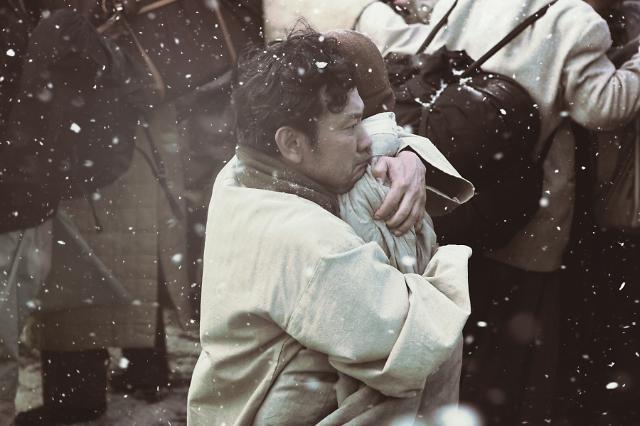
Limits to retelling
Many local film critics do not expect to see lots of Korean war-related films in the near future.
“There are limits to stories that can be told. It is hard to create original content using the source,” culture critic Ha Jae-kun said.
Culture critic Jung Deok-hyun also agrees.
“There is not much room for imagination,” Jung said. “It is similar to content related to the Japanese colonial period.”
Jung explained that this is because it is still a politically sensitive issue and there are living Korean War victims.
On top of that, film critic Hwang Young-mee says that a Korean War movie, in particular, is more difficult to make with the movie industry worldwide having been hit hard by the pandemic.
“It is difficult to create large-scale films now. For instance, in war movies, there have to be bomb explosion scenes, which cost a lot,” Hwang said. “War movies basically cost too much, so maybe in the next two to three years, it will be difficult to see large-scale films like ‘Escape from Mogadishu’ being made.”
Many local film critics do not expect to see lots of Korean war-related films in the near future.
“There are limits to stories that can be told. It is hard to create original content using the source,” culture critic Ha Jae-kun said.
Culture critic Jung Deok-hyun also agrees.
“There is not much room for imagination,” Jung said. “It is similar to content related to the Japanese colonial period.”
Jung explained that this is because it is still a politically sensitive issue and there are living Korean War victims.
On top of that, film critic Hwang Young-mee says that a Korean War movie, in particular, is more difficult to make with the movie industry worldwide having been hit hard by the pandemic.
“It is difficult to create large-scale films now. For instance, in war movies, there have to be bomb explosion scenes, which cost a lot,” Hwang said. “War movies basically cost too much, so maybe in the next two to three years, it will be difficult to see large-scale films like ‘Escape from Mogadishu’ being made.”
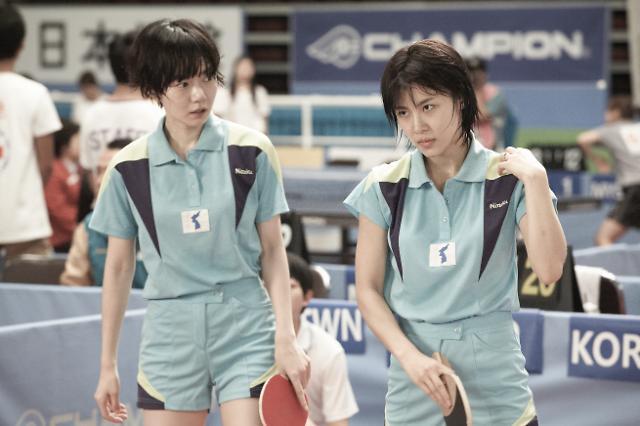
Appeal to global audiences
Since Korean films are becoming popular in the global market, whether the film can attract audiences outside of Korea has become one of the key factors for producers.
Culture critic Jung says that Korean War films can definitely appeal to global audiences.
“Audiences from outside of Korea -- Japanese audiences in particular-- definitely have a lot of interest in North Korea-related issues. They might be more sensitive to the issue than us (Koreans). Dramas like ‘Crash Landing on You’ becoming successful in Japan also shows how much interest they have in this topic,” Jung said.
North Korea and its nuclear missiles continue to pique the interests of Europeans and Americans, according to Hwang.
“They make the top news,” Hwang said. “So I don’t think that it is an inadequate topic for the global market.”
However, Hwang added that what is more important for Korean War-related films’ success in the global market is the quality and not solely the topic itself.
“A tight storyline, (appealing) characters and how well the filmmaker directed the movie is more important,” she added.
Since Korean films are becoming popular in the global market, whether the film can attract audiences outside of Korea has become one of the key factors for producers.
Culture critic Jung says that Korean War films can definitely appeal to global audiences.
“Audiences from outside of Korea -- Japanese audiences in particular-- definitely have a lot of interest in North Korea-related issues. They might be more sensitive to the issue than us (Koreans). Dramas like ‘Crash Landing on You’ becoming successful in Japan also shows how much interest they have in this topic,” Jung said.
North Korea and its nuclear missiles continue to pique the interests of Europeans and Americans, according to Hwang.
“They make the top news,” Hwang said. “So I don’t think that it is an inadequate topic for the global market.”
However, Hwang added that what is more important for Korean War-related films’ success in the global market is the quality and not solely the topic itself.
“A tight storyline, (appealing) characters and how well the filmmaker directed the movie is more important,” she added.




![[Herald Interview] 'Amid aging population, Korea to invite more young professionals from overseas'](http://res.heraldm.com/phpwas/restmb_idxmake.php?idx=644&simg=/content/image/2024/04/24/20240424050844_0.jpg&u=20240424200058)













![[KH Explains] Korean shipbuilding stocks rally: Real growth or bubble?](http://res.heraldm.com/phpwas/restmb_idxmake.php?idx=652&simg=/content/image/2024/04/25/20240425050656_0.jpg&u=)

